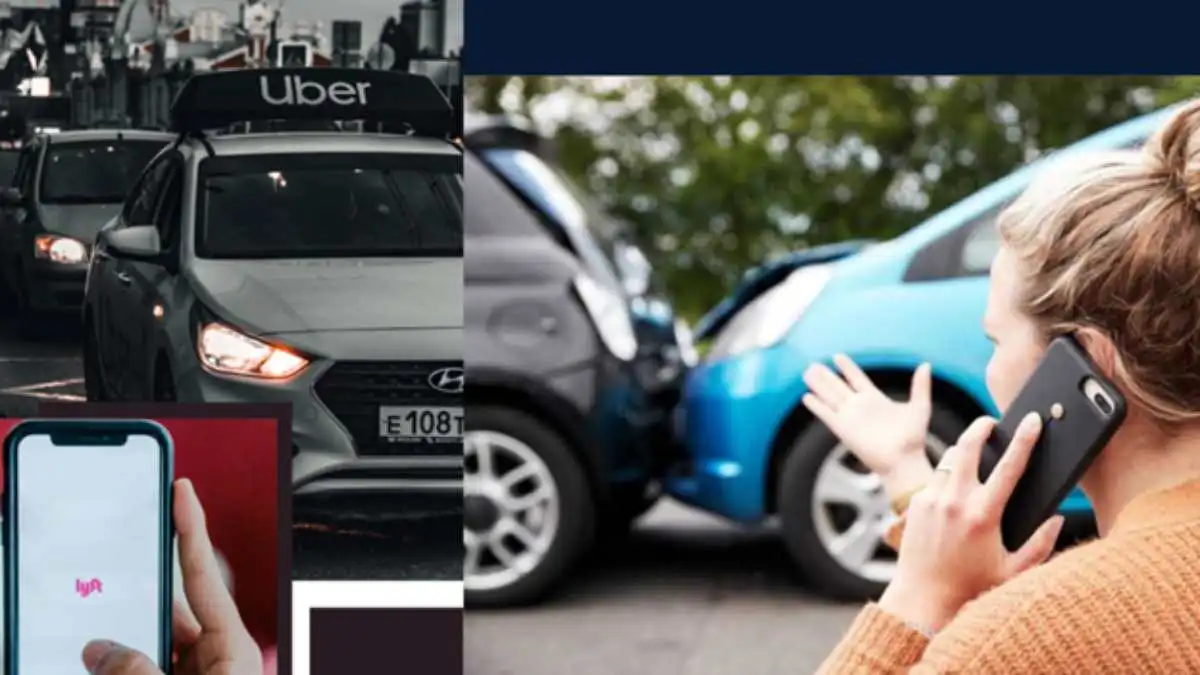INSURANCE
The Parties That Can Be Held Liable for a Rideshare Accident

Introduction
Ridesharing services like Uber and Lyft have revolutionized transportation, especially in cities like Richmond, providing affordability and convenience. However, because of individual negligence, these vehicles are frequently involved in accidents in Richmond.
Anyone involved in such an incident must understand who can be held accountable. If you’ve been injured, consulting a rideshare accident lawyer in Richmond can help clarify your legal options and identify the at-fault parties.
The Rideshare Driver
The most obvious liable party in a rideshare accident is often the driver. If negligence, such as speeding, distracted driving, or violating traffic laws, caused the crash, the driver may bear responsibility. However, rideshare drivers are considered independent contractors, which complicates liability.
While they carry personal insurance, rideshare companies also provide coverage when the app is active. A rideshare accident lawyer can determine whether the driver’s actions meet the threshold for liability.
The Rideshare Company
Uber and Lyft may also face liability under certain circumstances. While they argue that drivers are independent contractors, they can still be held accountable for negligent hiring, inadequate background checks, or failing to fire unsafe drivers.
Moreover, their insurance policies typically cover accidents occurring during an active ride (from pickup to drop-off). Proving company liability requires a thorough investigation, making legal guidance essential.
Other Motorists
Third-party drivers can also be at fault. If another motorist’s reckless behavior caused the accident, they may be liable. For example, a drunk driver who collides with a rideshare vehicle would bear responsibility for the crash.
In such cases, victims can pursue claims against the at-fault driver while exploring rideshare insurance coverage.
Vehicle Manufacturers or Maintenance Providers
Faulty auto parts or inadequate maintenance can contribute to accidents. If a mechanical issue, such as malfunctioning brakes or tire blowouts, caused the collision, the manufacturer or service shop may be held accountable.
Claims for product responsibility require demonstrating that the flaw existed and was the direct cause of the accident; this frequently calls for expert testimony.
Government Entities
Poor road conditions, missing signage, or malfunctioning traffic lights can also contribute to accidents. If government negligence contributed to the accident, filing a claim against a municipal entity may be possible. These time-sensitive cases involve strict procedural rules, underscoring the need for prompt legal action.
Determining Shared Fault
Due to comparative negligence, several participants share responsibility in many rideshare incidents. For instance, a ride-sharing service driver may be held 30% accountable for speeding, whereas another driver may be held 70% responsible for running a stop sign.
State laws differ in how compensation is affected by shared fault; in many jurisdictions, recovery is prohibited if the victim bears more than 50% of the blame. A knowledgeable lawyer can help you if you need assistance with any of these situations.
Final Thoughts
Determining liability in a rideshare accident requires examining numerous factors, from individual driver negligence to corporate policies, third-party actions, and road conditions.
Each case presents unique challenges in identifying responsible parties and applicable insurance coverage.
Professional legal guidance ensures victims understand their rights and pursue appropriate compensation.
-

 BIOGRAPHY9 months ago
BIOGRAPHY9 months agoBehind the Scenes with Sandra Orlow: An Exclusive Interview
-

 HOME1 year ago
HOME1 year agoDiscovering Insights: A Deep Dive into the //vital-mag.net blog
-

 HOME2 years ago
HOME2 years agoSifangds in Action: Real-Life Applications and Success Stories
-

 BIOGRAPHY1 year ago
BIOGRAPHY1 year agoThe Woman Behind the Comedian: Meet Andrew Santino Wife




























